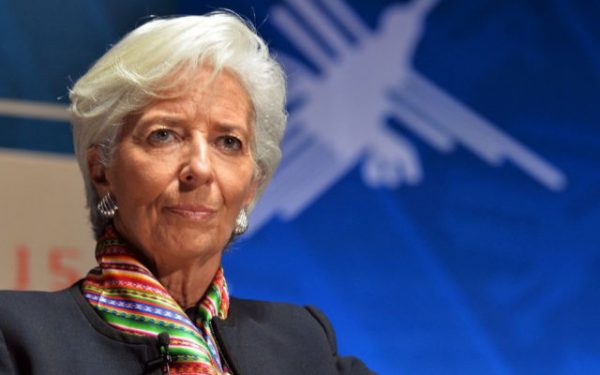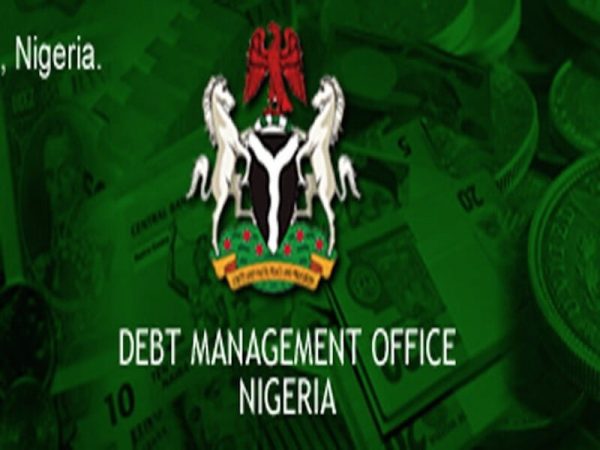IMF warns Nigeria of debt crisis, urges diversification

The International Monetary Fund (IMF) yesterday warned Nigeria and Sub-Saharan African economies to check rising levels of debts, diversify their revenue bases or face crisis.
Nigeria’s debt profile was N22.3 trillion as at June 30, 2018. About two-thirds of the government’s revenues go into servicing interest payments, with the principal still waiting for redemption at maturity.
The IMF advised the country to guard against the temptation to let higher oil prices delay reforms, warning that despite the recent recovery, oil prices are projected to remain below the 2013 peak.
It also reaffirmed the World Bank Group’s growth reversal at 1.9 per cent from 2.1 per cent for 2018 and 2.3 per cent in 2019, with 0.4 per cent up compared to April 2018 forecast.
Unveiling the World Economic Outlook titled, “Challenges to Steady Growth”, at the ongoing yearly meeting of the IMF/World Bank Group, in Bali, Indonesia, the Economic Counsellor of IMF Maurice Obstfeld admitted growth rebound in Nigeria and other sub-Saharan African nations, saying the trend would be buoyed by the impact of recovering oil production and prices.
Nigeria’s growth is projected to increase from 0.8 per cent in 2017 to 1.9 per cent in 2018 and 2.3 per cent in 2019, 0.4 percentage point higher than the April 2018 forecast.
On the rising obligations of the sub-region’s economies, Obstfeld pointed out that strengthening fiscal positions was necessary to reduce debt vulnerabilities.
“Boosting non-oil revenues and continuing fiscal consolidation plans remain key goals for oil exporters.
The focus should be on growth-friendly fiscal adjustment, with a shift in spending toward productive and social outlays accompanied by effective domestic revenue mobilisation, broadening of tax base and strengthening of revenue administration.
“Moreover, enhancing financial resilience through proactive banking supervision, ensuring adequate provisioning for losses by banks and improving resolution frameworks to keep expensive public bailouts at bay can help foster a financial system supportive of growth.”
The IMF report also warned that most countries must build fiscal buffers to make room for policy responses to the “next recession” and reduce the long-term costs of servicing high public debts.
The executive director, Jubilee USA, Eric LeCompte, said there was heightened anxiety about the downturn in economic growth.
According to him, the IMF report reminds the world that inequality remains a serious problem, with economies not safe from financial crisis.
IMF’s disclosure came as President Muhammadu Buhari seeks approval for a fresh $2,868,540,000 external loan.
The request was contained in two separate letters to both chambers of the National Assembly and was read by Senate President Bukola Saraki at plenary yesterday.
The president said the money would be used to partly fund the 2018 budget.
Giving a breakdown of the loan, Buhari explained that $2.786 billion would be borrowed from the international capital market for part-financing of the 2018 budget’s fiscal deficit and financing of key infrastructure projects.
The Federal Government would also need to raise another $82.54 million from the international capital market to refinance the balance of $500 million mature Eurobonds.
The president’s letter reads: “Pursuant to Sections 21 (1) and 27 (1) of the Debt Management Office (Establishment Etc) Act, 2003, I hereby request distinct and specific resolutions of the National Assembly to issue USD2.786 billion in Eurobonds and other securities in the international capital market for the implementation of New External Borrowing approved in the Federal Government of Nigeria’s 2018 Appropriation Act for the part-financing of the 2018 budget’s fiscal deficit, as well as to finance key infrastructure projects in the 2018 budget; and issue Eurobonds and other securities in the international capital market for the refinancing of USD82.54 million, being the balance of the five-year USD 500 million mature Eurobonds.”
The president also sought Senate’s approval for the N346 billion Niger Delta Development Commission’s (NDDC) budget for 2018.
A breakdown of the budget indicates that while N313.883 billion should be appropriated for capital expenditure, N31 billion was earmarked for recurrent expenditure.







